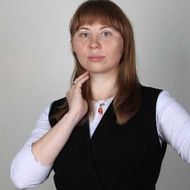Virtual Mozart, Venture Capital Bot, and Educational Video Generation: How AI is Used at HSE University

In mid-November, HSE University hosted a meetup where faculty, researchers, and administrators presented their projects and shared experiences with using AI technologies in education and research. The meeting was part of the continuing professional development programme 'Artificial Intelligence in Education and Research.'
The 'Artificial Intelligence in Education and Research' project supports the initiatives of university staff aiming to leverage advanced technologies to enhance the quality of education and scientific research. The project is carried out within the framework of the Priority 2030 Strategic Academic Leadership Programme.
Redesigning a Venture Capital Course Using AI Elements
Alexander Semenov, Associate Professor at the School of Finance, Faculty of Economics Sciences, shared his experience using artificial intelligence to redesign a course in Venture Capital. One of the primary goals of using AI was to enhance students' understanding of the financial investment market and innovative business practices.

Alexander Semenov
For this purpose, a virtual assistant was developed based on the psychologist chatbot Anna that interacts with students, helping them answer challenging questions and become more psychologically prepared to engage with investors. The use of this virtual assistant has enhanced the quality of student training and introduced new tools for discussing the psychological aspects of entrepreneurship.
AI Simulacra for a Figital Art Course
Evgeniya Evpak, Research Assistant at the HSE ISSEK Laboratory for Economics of Innovation and visiting lecturer at the HSE Art and Design School, presented a project centred on integrating AI simulacra into a course on figital art.

Evgeniya Evpak
The project’s main idea was to create virtual avatars of historical figures, such as Plato, Jean Baudrillard, and Wolfgang Amadeus Mozart, to facilitate educational dialogues with students. These avatars were created using the Hedra and GigaChat neural networks, enabling the integration of gamification elements into the educational process and the creation of an interactive environment for studying figital art and its theoretical foundations. This approach will not only save time in creating educational video materials but also make learning more engaging for students.
AI Tools for Teaching Foreign Languages
Natalia Ryapina, Senior Lecturer at the School of Foreign Languages, HSE Campus in Perm, shared her experience using AI to teach foreign languages.

Natalia Ryapina
The main focus was on using multimodal AI tools, such as Gamma and EdrawMind, which help adapt educational materials and contribute to their comprehension by students. Generating content in various formats (video, audio, text) using artificial intelligence caters to students with different learning styles, increasing their engagement in the educational process and helping them immerse themselves more deeply in the material.
Integration of AI in Educational Activities
Ksenia Fimina, Senior Lecturer at the HSE School of Applied Mathematics, demonstrated how artificial intelligence can optimise the creation of educational materials.

Ksenia Fimina
In her work, she uses AI tools like Narakeet and Invideo AI, which reduce the time required to create presentation-quality videos by more than tenfold. AI tools offer teachers a wide range of ready-made templates and ideas for visually presenting lecture material, helping make the educational process more engaging and accessible for students. Ksenia Fimina also uses neural network technologies in developing a digital assistant for medical researchers as part of the Smart Medicine project.
Using AI to Examine the Narrative Structure of a Text
Marharyta Fabrykant, Senior Research Fellow at the Expert Institute's Laboratory for Comparative Studies in Mass Consciousness, presented the results of a study on using AI tools to analyse the emotional tone of a text and examine its narrative structure.

Marharyta Fabrykant
The project employed emotional dynamics analysis using the NLTK library to study the ancient epic of Gilgamesh. The study revealed patterns in the emotional structure of the text, confirming hypotheses about the rise and fall of emotional intensity at key moments of the narrative. Marharyta Fabrykant's project demonstrates the potential of using AI technologies for objective analysis of complex texts, which is highly significant for conducting humanities research.
The ‘Artificial Intelligence in Education and Research’ is a continuing professional development programme implemented by the HSE Faculty of Computer Sciences' Continuing Education Centre and the HSE Centre for Staff Continuing Professional Development.
See also:
HSE Scientists Reveal What Drives Public Trust in Science
Researchers at HSE ISSEK have analysed the level of trust in scientific knowledge in Russian society and the factors shaping attitudes and perceptions. It was found that trust in science depends more on everyday experience, social expectations, and the perceived promises of science than on objective knowledge. The article has been published in Universe of Russia.
HSE Scientists Optimise Training of Generative Flow Networks
Researchers at the HSE Faculty of Computer Science have optimised the training method for generative flow neural networks to handle unstructured tasks, which could make the search for new drugs more efficient. The results of their work were presented at ICLR 2025, one of the world’s leading conferences on machine learning. The paper is available at Arxiv.org.
Neural Network Trained to Predict Crises in Russian Stock Market
Economists from HSE University have developed a neural network model that can predict the onset of a short-term stock market crisis with over 83% accuracy, one day in advance. The model performs well even on complex, imbalanced data and incorporates not only economic indicators but also investor sentiment. The paper by Tamara Teplova, Maksim Fayzulin, and Aleksei Kurkin from the Centre for Financial Research and Data Analytics at the HSE Faculty of Economic Sciences has been published in Socio-Economic Planning Sciences.
Larger Groups of Students Use AI More Effectively in Learning
Researchers at the Institute of Education and the Faculty of Economic Sciences at HSE University have studied what factors determine the success of student group projects when they are completed with the help of artificial intelligence (AI). Their findings suggest that, in addition to the knowledge level of the team members, the size of the group also plays a significant role—the larger it is, the more efficient the process becomes. The study was published in Innovations in Education and Teaching International.
Advancing Personalised Therapy for More Effective Cancer Treatment
Researchers from the International Laboratory of Microphysiological Systems at HSE University's Faculty of Biology and Biotechnology are developing methods to reduce tumour cell resistance to drugs and to create more effective, personalised cancer treatments. In this interview with the HSE News Service, Diana Maltseva, Head of the Laboratory, talks about their work.
Master’s Students of HSE, University of Campinas, and Tsinghua University Publish Joint Student Research Collection
Master’s students of the HSE ISSEK programme ‘Science, Technology and Innovation Management and Policy’ have released a joint research collection with the University of Campinas (Brazil) and Tsinghua University (China) titled ‘Being Innovative or Being on the Safe Side—Managing the Risk of Failure.’ The authors explore how organisations perceive risks and embrace innovation within different cultural contexts.
‘A Turn Away from Stereotypes’: Moscow Hosts ‘Researching the Deaf Community’ Conference
On October 17–19, 2025, the third annual interdisciplinary conference ‘Researching the Deaf Community 2025: on the Periphery of Attention’ took place at GES-2 House of Culture in Moscow. The event was organised with the participation of the HSE International Laboratory for Social Integration Research. HSE University Vice Rector Irina Martusevich addressed attendees at the opening ceremony.
Exploring the Mind: HSE Scientists Discuss Cognitive Technologies of the Future
Why we make irrational decisions, how the brain responds to fakes, and whether neural networks are capable of thinking—these were the topics discussed by early-career scientists of HSE University during the NAUKA 0+ science festival. The event brought together students and experts from various fields, united by a common goal—to deepen their understanding of the human brain and cognitive technologies.
HSE Researchers Assess Creative Industry Losses from Use of GenAI
Speaking at the IPQuorum.Music forum on October 15, Leonid Gokhberg, HSE First Vice Rector, and Daniil Kudrin, an expert at the Centre for Industry and Corporate Projects of HSE ISSEK, presented the findings of the first study in Russia on the economic impact of GenAI on creative professions. The analysis shows that creators’ potential losses could reach one trillion roubles by 2030.
International Dialogue on Urban Development: Dynamic Urbanism and Green Infrastructure
In September 2025, the HSE Faculty of Urban and Regional Development (FURD) hosted a delegation of leading scholars and urban development experts from China. Two seminars were held at the Shukhov Lab with the participation of Chinese colleagues: the first focused on green infrastructure, while the second explored the theme of dynamic urbanism. In addition, a meeting between the Chinese delegation and representatives of FURD took place at the university’s main building on Pokrovsky Bulvar. The participants discussed opportunities for expanding cooperation between universities and research centres.


